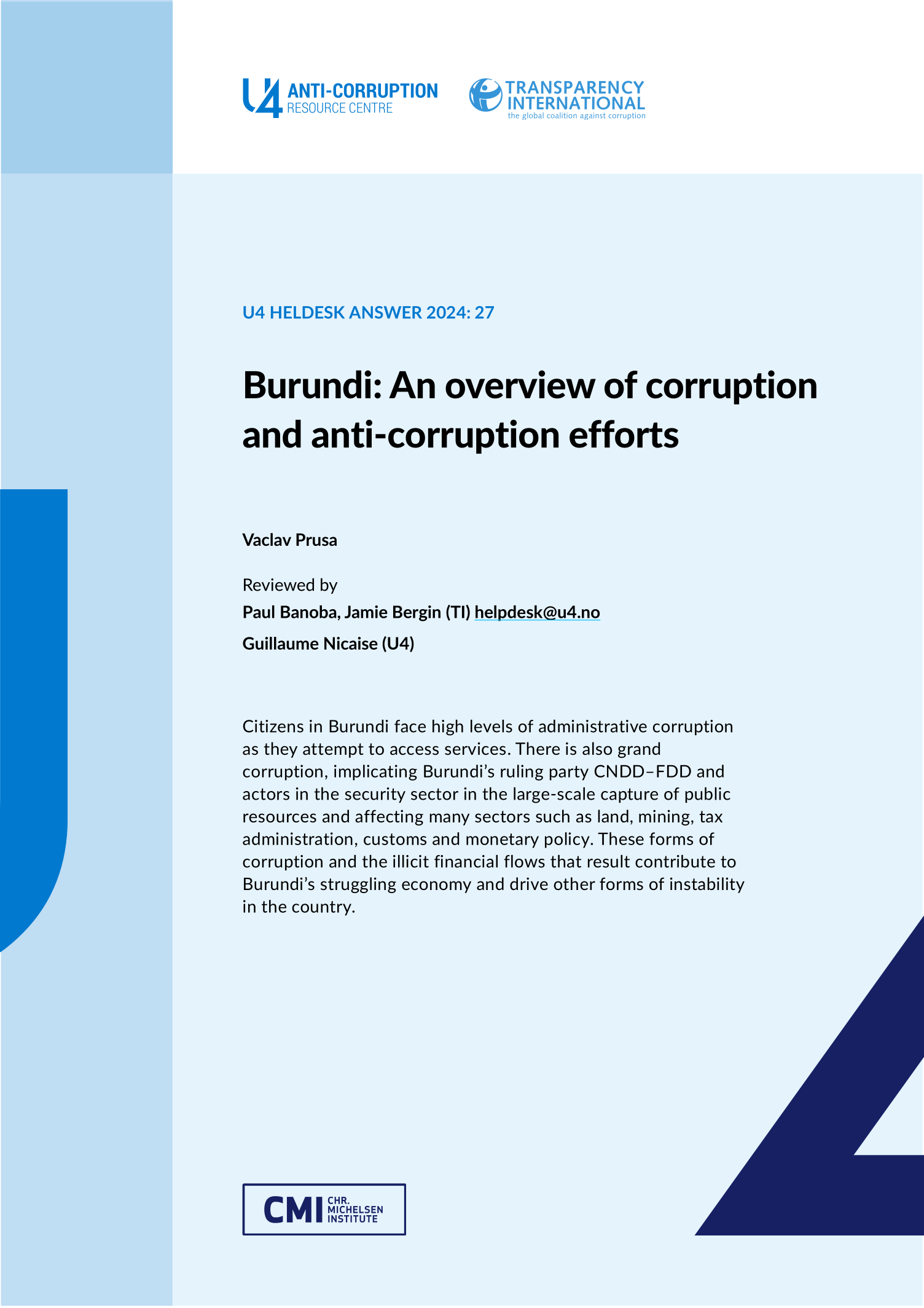Main points
- Burundi’s ruling party Conseil National pour la Défense de la Démocratie – Forces pour la Défense de la Démocratie (CNDD–FDD) and actors in the security sector are allegedly complicit in the large-scale capture of public resources, achieved through abuse of office and trading in influence.
- Between 1985 and 2013, Burundi lost an estimated US$3.7 billion in Illicit financial flows (IFFs), with significant losses from balance of payment leaks and trade misinvoicing.
- On top of this, some members of the Burundian political elite are suspected of misappropriating foreign currency reserves, contributing to structural economic damage to Burundi.
- Influential figures in politics, security and business sectors often seize public lands and natural resources, such as land for coffee plantations, without consequences.
- Corruption in tax and customs authorities facilitates organised criminal activities, such as arms trafficking, which leads to extensive revenue losses. For example, mining companies and cooperatives frequently collude with state officials and underreport their production to avoid taxes and reduce the risk of extortion, and bypass screening processes at Burundi international airport and land border crossings.
- The main drivers of corruption are weak institutions, the lack of transparency, the lack of accountability through elections, low public salaries, ethnic politics, the suppression of most forms of civic engagement and the high levels of impunity facilitated by a lack of judicial independence.
- While Burundi is a signatory of key treaties such as the UNCAC and a member of regional networks, its legal and institutional anti-corruption framework is undermined by weak institutions lacking independence and the absence of anti-corruption legislative measures, such as beneficial ownership and asset declaration.


